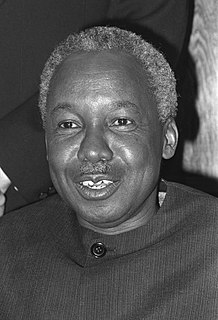A Quote by John Stuart Mill
Solitude in the presence of natural beauty and grandeur is the cradle of thought and aspirations which are not only good for the individual, but which society can ill do without.
Related Quotes
Strictly speaking, the mass, as a psychological fact, can be defined without waiting for individuals to appear in mass formation. In the presence of one individual we can decide whether he is "mass" or not. The mass is all that which sets no value on itself good or ill based on specific grounds, but which feels itself "just like everybody," and nevertheless is not concerned about it; is, in fact, quite happy to feel itself as one with everybody else.
The natural effort of every individual to better his own condition is so powerful that it is alone, and without any assistance, capable not only of carrying on the society to wealth and prosperity, but of surmounting 100 impertinent obstructions with which the folly of human laws too often encumbers its operations.
Society in its full sense ... is never an entity separable from the individuals who compose it. No individual can arrive even at the threshold of his potentialities without a culture in which he participates. Conversely, no civilization has in it any element which in the last analysis is not the contribution of an individual.
Civil rights are those which appertain to man in right of his being a member of society. Every civil right has for its foundation some natural right pre-existing in the individual, but to the enjoyment of which his individual power is not, in all cases, sufficiently competent. Of this kind are all those which relate to security and protection.
Solitude in the city is about the lack of other people or rather their distance beyond a door or wall, but in remote places it isn’t an absence but the presence of something else, a kind of humming silence in which solitude seems as natural to your species as to any other, words strange rocks you may or may not turn over.
A good author, and one who writes carefully, often discovers that the expression of which he has been in search without being able to discover it, and which he has at last found, is that which was the most simple, the most natural, and which seems as if it ought to have presented itself at once, without effort, to the mind.
When society is made up of men who know no interior solitude it can no longer be held together by love: and consequently it is held together by a violent and abusive authority. But when men are violently deprived of the solitude and freedom which are their due, then society in which they live becomes putrid, it festers with servility, resentment and hate.
When anything is in the presence of evil, but is not as yet evil, the presence of good arouses the desire of good in that thing; but the presence of evil, which makes a thing evil, takes away the desire and friendship of the good; for that which was once both good and evil has now become evil only, and the good has no friendship with evil.
Art itself is essentially ethical; because every true work of art must have a beauty or grandeur of some kind, and beauty and grandeur cannot be comprehended by the beholder except through the moral sentiment. The eye is only a witness; it is not a judge. The mind judges what the eye reports to it; therefore, whatever elevates the moral sentiment to the contemplation of beauty and grandeur is in itself ethical.
Each member of society can have only a small fraction of the knowledge possessed by all, and...each is therefore ignorant of most of the facts on which the working of society rests...civilization rests on the fact that we all benefit from knowledge which we do not possess. And one of the ways in which civilization helps us to overcome that limitation on the extent of individual knowledge is by conquering intelligence, not by the acquisition of more knowledge, but by the utilization of knowledge which is and which remains widely dispersed among individuals.
Having come into contact with a civilization which has over-emphasized the freedom of the individual, we are in fact faced with one of the big problems of Africa in the modern world. Our problem is just this: how to get the benefits of European society - benefits that have been brought about by an organization based upon the individual - and yet retain African's own structure of society in which the individual is a member of a kind of fellowship.
A society which makes provision for participation in its good of all its members on equal terms and which secures flexible readjustment of its institutions through interaction of the different forms of associated life is in so far democratic. Such a society must have a type of education which gives individuals a personal interest in social relationships and control, and the habits of mind which secure social changes without introducing disorder.
God is not only to be known in His blessed and incomprehensible being, for this is something which is reserved for His saints in the age to come. He is also known from the grandeur and beauty of His creatures, from His providence which governs the world day by day, from His righteousness and from wonders which He shows to His saints in each generation.







































